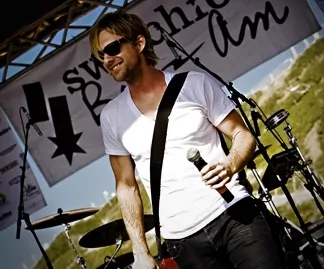Imagine with me, if only for a moment, watching your way of life crumble away. Envision what it would feel like to see the buildings, rituals and day-to-day experiences of your childhood die, never to return again.
Every time I travel from the south suburbs of Chicago to my hometown of Fishhook, Ill., I am faced with this reality. For generations, this west-central Illinois village of less than 50 people has been based around the family farm. A family could make a decent living from sheep, cattle, hogs, chickens and many long days of labor. My great-great-grandfather moved to the area and put his hand to the plow just after the Civil War. And for six generations, the rhythm of life had maintained the same pace, as the land was handed down, father to son.
Over the last 10 years, a shifting economy, technological changes and the spread of corporate America have all but annihilated the family farm. Gone are the husband-and-wife teams who drew a solid living from the ground, replaced by LLC corporations who run quarter-million-dollar combines over thousands of acres, backed by multi-million dollar loans from large banks. My children will never know the freedom of roaming thousands of acres of ground on four-wheelers in the summer sun, or hunting rabbits in freshly fallen snow anywhere they please. The trust between neighbors has been replaced with “No Trespassing” signs.
But as nearly everything else changes, I believe our songs will live on. In the 60 or so years of popular music history, countless trends have come and gone. But the voice of blue collar workers, farmers and those living in small town America always finds its way back through. While music is seen as mainly an urban affair these days, rock and roll would have never been born if it weren’t for black farmers picking out blues songs on guitars after a hard days work. No matter who you favorite artists are, they owe something to roots music.
The music press inaccurately labels a variety of music with the words “roots” or “country.” While I love Fleet Foxes, there’s simply no way that five suburban kids from Seattle raised on Radiohead and Nintendo 64 are making authentic “roots” music. (That’s not to say that the band’s excellent debut isn’t authentic, only that it doesn’t represent the sounds and experiences of agricultural/blue collar America.)
For this Fourth of July week, I encourage you to dig into, as Johnny Cash and Bob Dylan once described roots music, “songs from the real America.” It’s not the soundtrack of NASCAR fans, nor is it the “cool country” of Ryan Adams or the solo albums of Jenny Lewis. True roots music survives today in tiny sub-genres with strong regional followings around the lives shows, with names like “Canadian-prairie folk” and “the redneck underground.” But wherever real roots music is found, it’s breathing new life into the stories of a nation originally built on the backs of laborers and farmers.
Drive By Truckers
Hailing from Muscle Shoals, Ala., (a famous music town where everyone from Aretha Franklin to Lynyrd Skynyrd recorded), the three-guitar rock of Patterson Hood and company has churned out eight albums dealing with life in the rural South. Whether it’s pointing a spotlight on the unusually high cancer rates surrounding NASA’s headquarters in Alabama (coupled with high unemployment and poor healthcare), or singing about trying to overcome the complex racial history of the South, the band never fails to accurately chronicle the life in the rural Southeast.
John Wort Hannam
I literally happened upon this Canadian folk singer performing on the street in Washington D.C. From the moment I heard him sing a line about Wal-Mart killing the local shops in his hometown, I would share a strong connection to his songs. Raised in the prairie lands of Alberta, Canada, Hannam sings about what he knows: the rough-handed life of farm hands and commercial fisherman. He uses a piano, simple percussion, guitar, upright bass and harmonized vocals to share what he knows: rural life and the struggle of the common laborer.
Bruce Springsteen’s Seeger Sessions
The name “Pete Seeger” doesn’t mean much to the music fans of this generation. Which is why I’ll always be thankful to Bruce Springsteen for resurrecting the folk singer’s catalog for the 2006 cover album The Seeger Sessions and introducing the songs to many for the first time. Recorded “live” (sometimes around a single microphone) the sessions are a big, big affair. Springsteen’s signature growl is backed by a 13-piece band, including a four-piece string section and a tuba. Some of the songs are more than 150 years old, using chords and melody to keep alive the tales of early settlers trying stay alive on the uncharted region that became our southwestern states. Also notable is the brilliant rendition of “We Shall Overcome,” the unofficial theme song for the civil rights movement.
Johnny Cash’s Life Album
Cash went through so many phases in his epic career, it’s easy to forget that the recovered drug addict, TV host and rock star originally started out on the farm in Dyess, Ark. He fell in love with music through country radio broadcasts and singing from his mother’s hymnbook. No single disc collection captures his roots as a singing farm boy who lived in a labor town more than the Life album. It’s an introduction to the man through the songs that showed the life, hope and tears of common workers from his childhood. As Cash himself humbly described his beginnings, “God’s got a heaven for country trash.”
Seth “tower” Hurd, 26, is a radio host and writer from the Midwest who can be heard on Chicago’s 89.7 Shine.FM and 101.7 FUSE FM in Mid-Michigan.





















